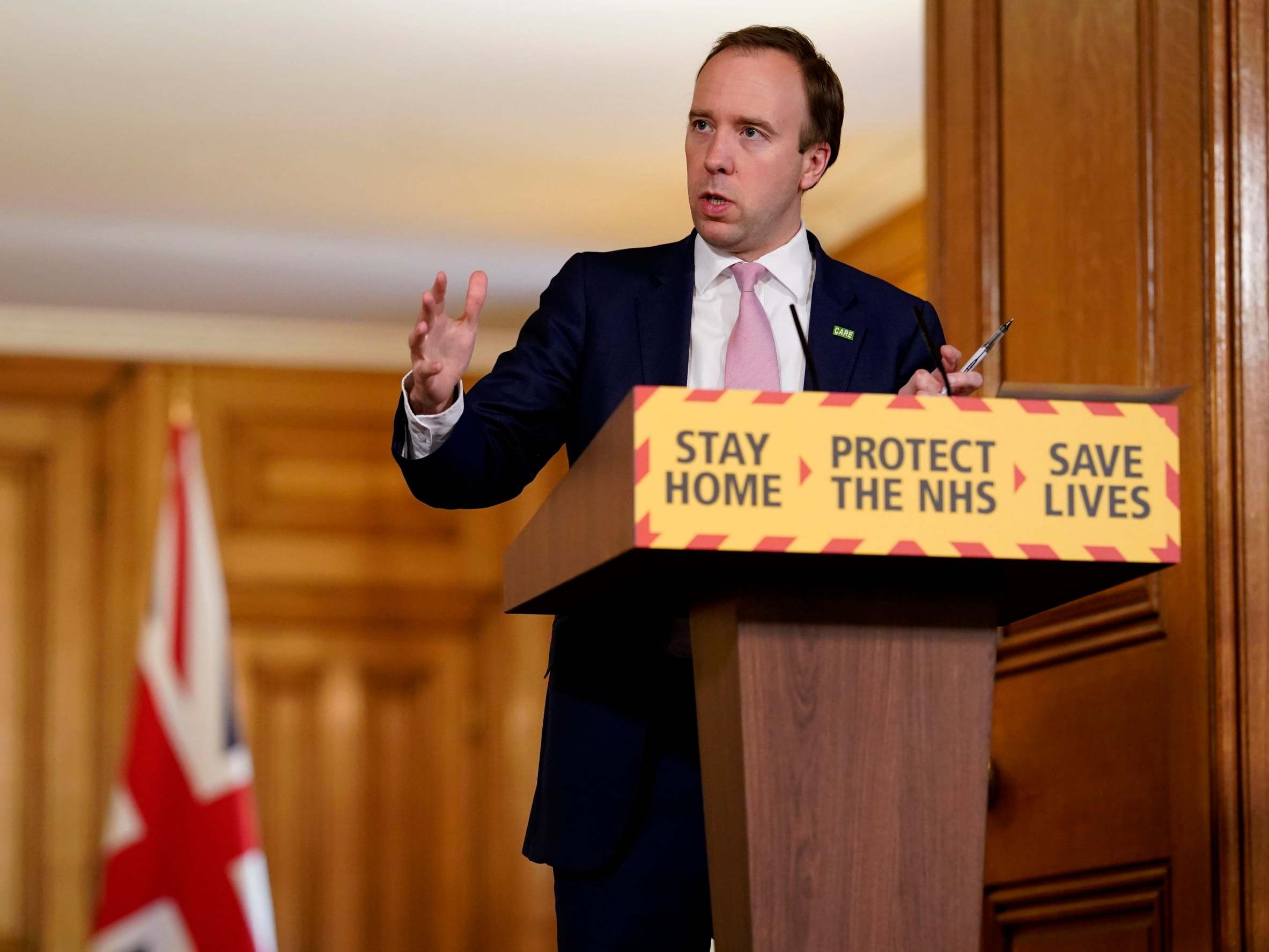Britons deserve to be told the truth about lockdown strategy
Editorial: The health secretary seems to believe that merely talking about modest relaxation of the rules will lead to some sort of stampede for the sunny beaches. He should have more faith in the public

In a series of tetchy media interviews, Matt Hancock, the health secretary, doggedly held to the government’s line that the lockdown must continue for at least three weeks longer. In the meantime, no one in government is prepared to talk openly about the possible routes out of the current system of voluntary house arrest. If there is an exit strategy, no one is admitting to it. That only adds to suspicions that there isn’t one, that ministers don’t know what they’re doing, and cannot make any major decisions, such as on relaxing the lockdown, while Boris Johnson is absent, convalescing indefinitely. That is not a reassuring picture.
Mr Hancock was understandably annoyed about getting constantly interrupted before he had a chance to finish his answers because he takes the current challenge seriously; after all, his political career hangs on it. This is a tense moment. He and the government are on the brink of some rare successes, as, more to the point, is the country as a whole.
The coronavirus statistics are probably moving in the right direction; though unfashionable to mention it, the infection rate in Britain may now be lower than in Germany; and, for the moment, the NHS has not been overwhelmed. The Nightingale hospitals are operating well below capacity. There have been many frightening failures, and some, such as testing, PPE and controlling the epidemic in care homes, are shamefully continuing. But we must give credit where it is due. Late as it was, the lockdown is working. The British, on the whole, rose to the occasion. The pitiful scenes we saw from Italy were not repeated. The nation might give itself a round of applause, as this is all the rage.
There is a broad consensus that the lockdown must continue until its success is clear and unambiguous. The lines on the graphs need to start turning down. But there is little harm, and much to be said, for giving the public some idea about what happens next, in the medium term. Families may wish, tentatively, to consider options for their children’s schooling and holidays; struggling businesses need to plan their own paths to recovery; and everyone would like to know when it will be safe to venture outside.
There is no obvious reason why talking about the future and the options for an exit strategy would make anyone want to immediately run outside and start shaking hands with anyone they meet. Everyone knows social distancing will be a new way of life for a long time to come.
The fact is that the public has shown a surprising keenness to lock themselves away; few have flouted the new conventions and polls suggest a tightening of restrictions would be supported. This is not just because of the law, government messaging and an altruistic desire to support the NHS and protect others. It is also because of the sheer naked fear of contracting Covid-19. That will not disappear if a few small shops open or the football resumes. Self-interest is as powerful a motivation as any in making the lockdown effective, and it will continue to be so for as long as there is a substantial risk of infection.
Remember that the government was led into the lockdown by sports organisations scrapping events, people going home to work and parents voluntarily pulling their children out of school. No 10 was following a trend, not setting it. Soon, the government, as it relaxes the lockdown, will have to persuade some frightened people that it is safe to go to work, to use public transport and go to the beach. The cruise trade will certainly encounter some difficulty getting its older clientele back aboard.
Yet Mr Hancock seems to believe that merely talking about modest relaxation of the rules will lead to some sort of stampede for the sunny beaches. He is underestimating the innate caution of his compatriots, especially those older than 50.
Over in Germany, Angela Merkel, the chancellor, has enjoyed a surge in popularity and her style of methodical, unfussy leadership suits these times. She explains to the German people about the fragility of the situation and talks them through the terrible risks of getting the country’s exit strategy wrong. Going too fast would mean risking a second wave and a fresh peak in demand; going too slowly, it is implied, means piling up more economic difficulties.
All is understood: the German people are judged to be mature and sensible enough to understand the trade-offs and to be told what is going on. After all, they are going to have to make it work. Having done so much to make the lockdown work, protect the NHS and save lives, the British people deserve the same. They need not be treated like children by their government.
Join our commenting forum
Join thought-provoking conversations, follow other Independent readers and see their replies
Comments
Bookmark popover
Removed from bookmarks